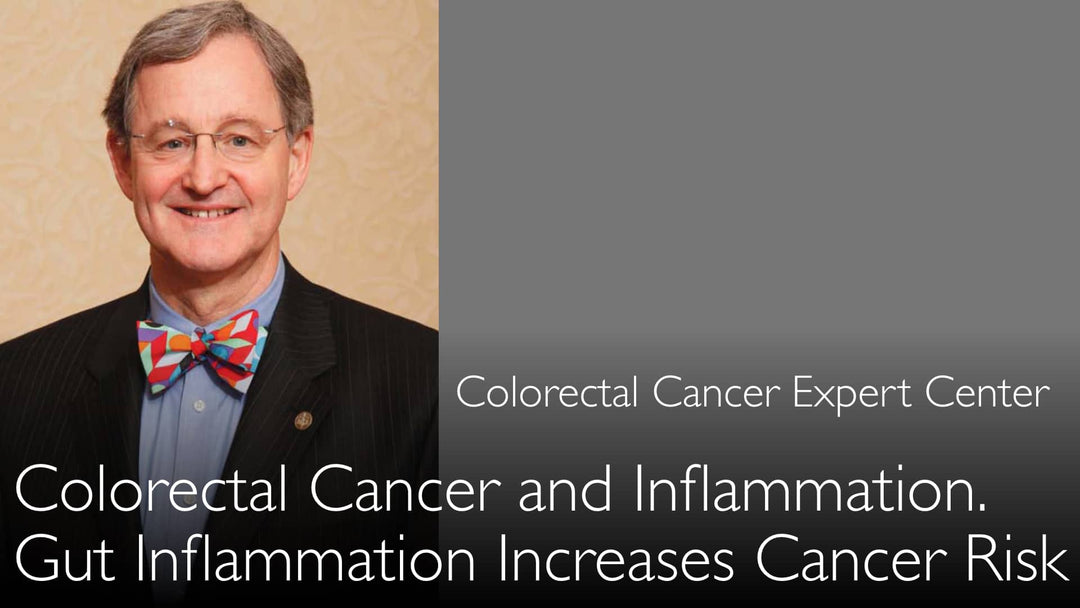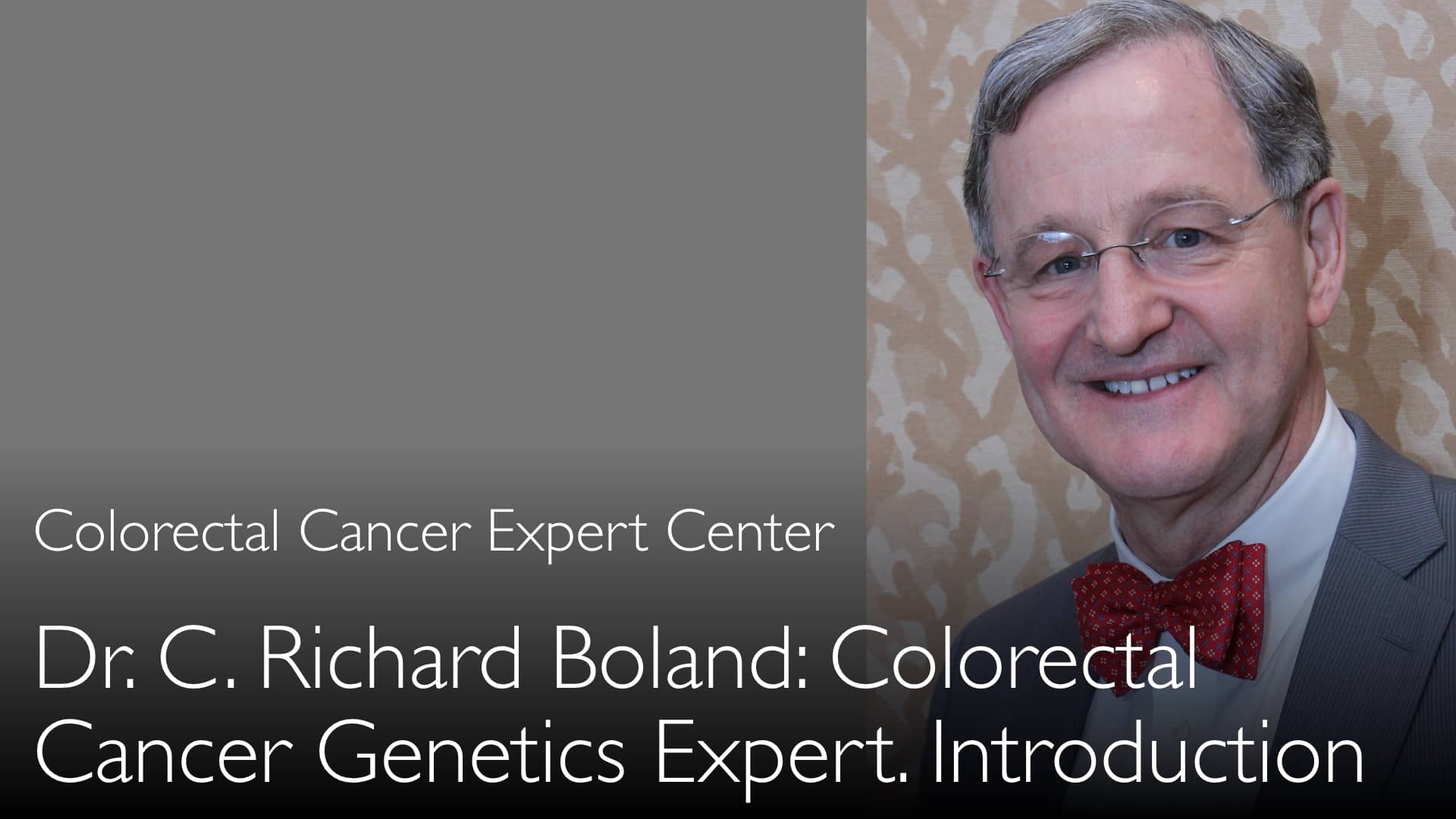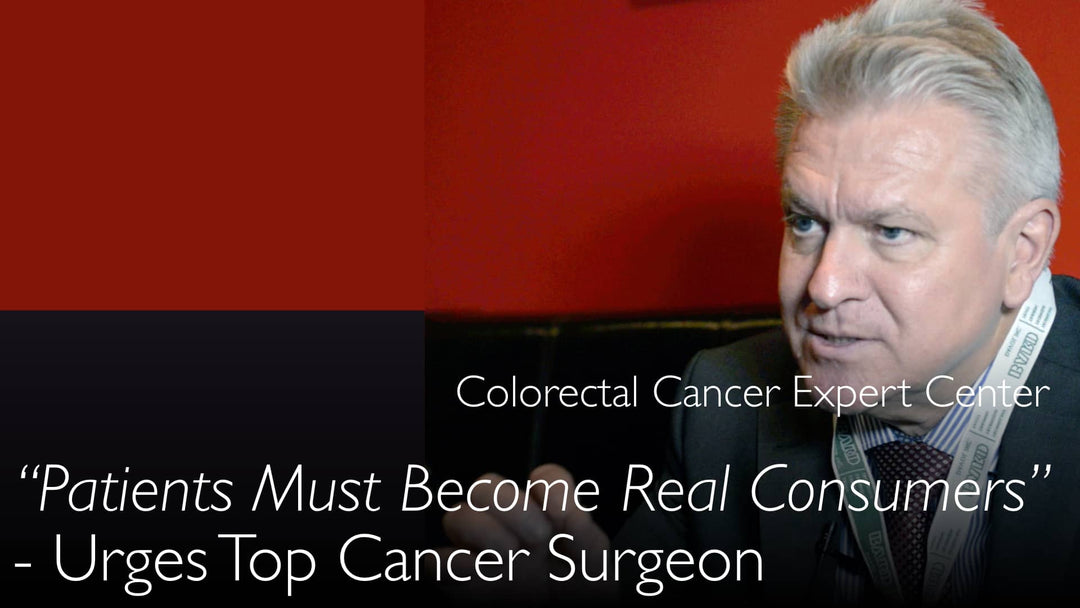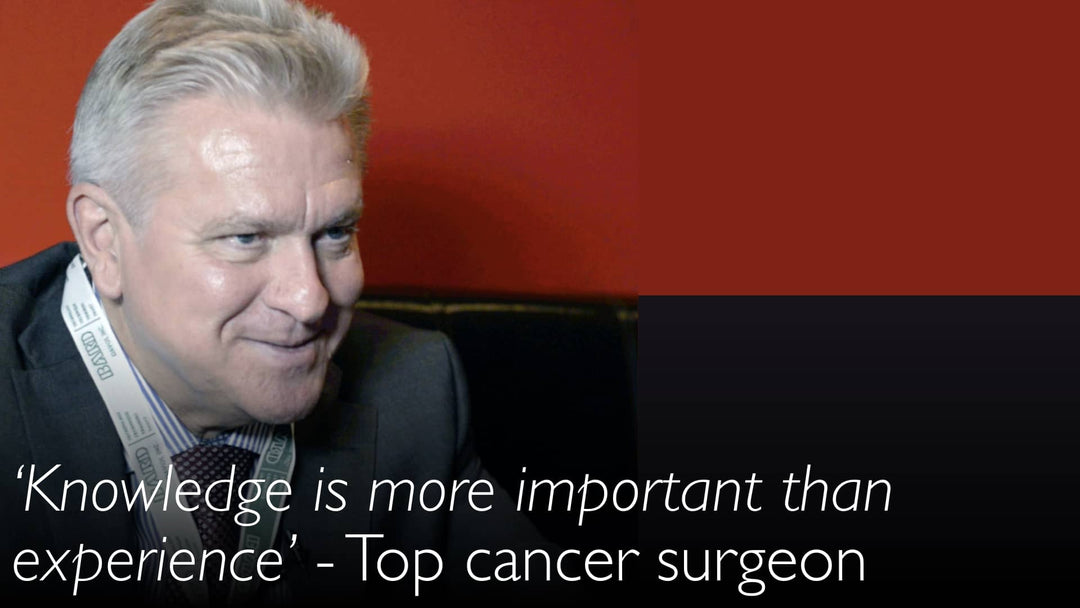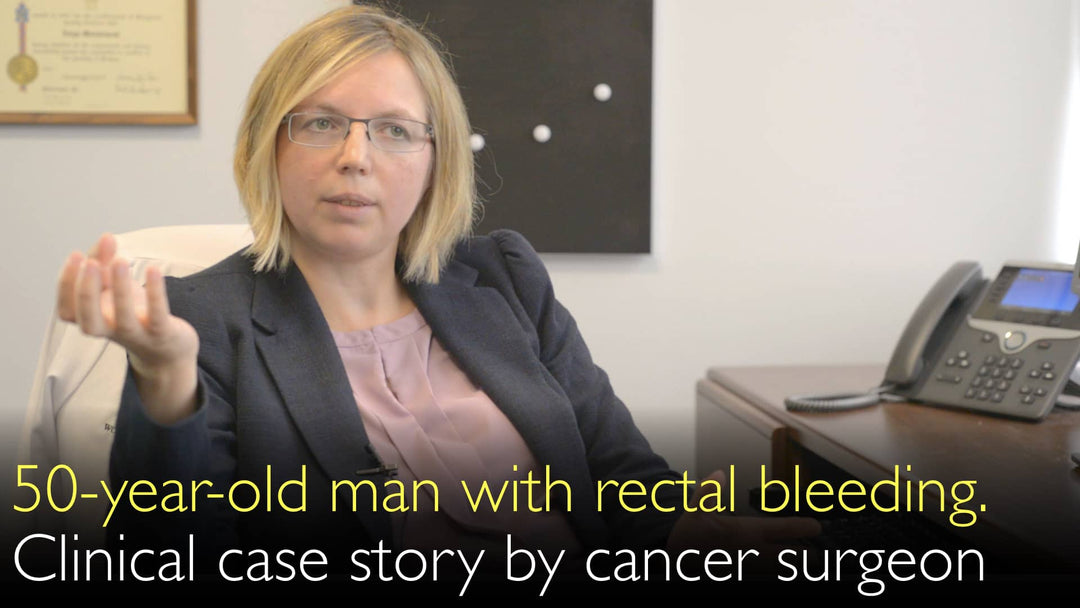Le Dr C. Richard Boland, expert de renom en cancers gastro-intestinaux, explique comment l’inflammation chronique accroît significativement le risque de cancer dans l’ensemble du système digestif, notamment dans des pathologies comme la rectocolite hémorragique, la cholangite sclérosante primitive et la pancréatite chronique. Il décrit les mécanismes biologiques qui relient l’inflammation à la cancérogenèse et évoque les biomarqueurs émergents susceptibles d’aider à identifier les patients à haut risque.
Inflammation chronique et risque de cancer : comment les pathologies intestinales favorisent les cancers digestifs
Aller à la section
- Le lien entre inflammation et cancer dans les troubles gastro-intestinaux
- Facteurs de risque du cancer colorectal dans la rectocolite hémorragique
- Comment l'inflammation déclenche le développement cancéreux
- Caractéristiques particulières des cancers dans la maladie inflammatoire chronique intestinale
- Biomarqueurs microARN pour la prédiction du cancer
- Quand envisager une colectomie préventive
- Transcription intégrale
Le lien entre inflammation et cancer dans les troubles gastro-intestinaux
L'inflammation chronique accroît significativement le risque de cancer sur l'ensemble du tube digestif, comme l'explique le docteur C. Richard Boland. Des pathologies comme la rectocolite hémorragique, la cholangite sclérosante primitive et la pancréatite chronique créent des environnements inflammatoires persistants qui favorisent l'émergence de cancers. Le docteur Boland souligne que l'inflammation agit par de multiples mécanismes pour augmenter le risque de cancer gastro-intestinal.
Certaines affections inflammatoires sont spécifiquement associées à des cancers particuliers : la rectocolite hémorragique accroît le risque de cancer colorectal, la cholangite sclérosante primitive celui des voies biliaires (cholangiocarcinome), et la pancréatite chronique celui du cancer pancréatique. Ces associations démontrent l'impact systémique de l'inflammation chronique sur la cancérogenèse.
Facteurs de risque du cancer colorectal dans la rectocolite hémorragique
Les patients atteints de rectocolite hémorragique présentent un risque de cancer colorectal nettement plus élevé que la population générale. Le docteur Richard Boland note que la durée et l'étendue de l'inflammation colique sont directement corrélées au risque cancéreux. Le cycle continu de lésion et de réparation dans le côlon enflammé crée un terrain propice à la transformation maligne.
Le docteur Boland précise que le risque cancéreux commence à augmenter significativement après 8 à 10 ans d'évolution de la maladie, particulièrement chez les patients atteints de pancolite (inflammation touchant l'ensemble du côlon). La coloscopie de surveillance régulière devient alors cruciale pour la détection précoce chez ces patients à haut risque.
Comment l'inflammation déclenche le développement cancéreux
Le docteur Richard Boland décrit trois mécanismes clés par lesquels l'inflammation chronique favorise le cancer. Premièrement, les processus inflammatoires génèrent des radicaux libres qui endommagent l'ADN, créant des mutations potentiellement cancérigènes. Deuxièmement, les cellules inflammatoires attirées sur le site libèrent des cytokines qui amplifient anormalement les réponses immunitaires.
Troisièmement, les facteurs de croissance libérés durant l'inflammation stimulent la prolifération des cellules tumorales. « C'est la pire des combinaisons », explique le docteur Boland. « L'inflammation produit des radicaux libres mutagènes, tandis que les facteurs de croissance attisent le feu de la croissance tumorale. » Cette synergie crée une tempête parfaite pour le développement cancéreux dans les tissus chroniquement inflammés.
Caractéristiques particulières des cancers dans la maladie inflammatoire chronique intestinale
Les cancers survenant chez les patients atteints de rectocolite hémorragique présentent des caractéristiques moléculaires uniques, différentes des cancers colorectaux sporadiques ou des tumeurs du syndrome de Lynch. Les recherches du docteur Boland ont montré que ces tumeurs présentent souvent des caractéristiques du phénotype de méthylation des îlots CpG (CIMP) et adoptent un comportement particulièrement agressif.
La signature moléculaire des cancers associés à la colite suggère qu'ils se développent par des voies distinctes des autres cancers colorectaux. Le docteur Richard Boland note que ces tumeurs apparaissent fréquemment à un âge plus jeune et peuvent évoluer plus rapidement, nécessitant des approches de surveillance et de traitement adaptées.
Biomarqueurs microARN pour la prédiction du cancer
Des recherches prometteuses du laboratoire du docteur Boland ont identifié des profils distincts de microARN présents dans l'ensemble du côlon chez les patients atteints de rectocolite hémorragique chronique. Ces signatures moléculaires pourraient à terme aider à prédire quels patients développeront un cancer, permettant une intervention plus précoce.
Le docteur Richard Boland explique que de tels biomarqueurs pourraient révolutionner les stratégies de surveillance. « Si nous pouvons identifier plus tôt les patients à haut risque, nous pourrons recommander des mesures préventives comme la colectomie avant l'apparition du cancer », déclare-t-il. Cette approche de médecine de précision pourrait significativement améliorer le pronostic des patients atteints de rectocolite hémorragique.
Quand envisager une colectomie préventive
Pour les patients atteints de rectocolite hémorragique avec inflammation chronique, le docteur Boland souligne l'importance du timing de la colectomie préventive. Lorsque les biomarqueurs ou la surveillance indiquent un risque cancéreux élevé, l'ablation précoce du côlon peut être préférable à l'attente du développement du cancer.
Le docteur Richard Boland précise que la décision doit équilibrer le risque cancéreux avec la qualité de vie. « Si nous savons qu'un cancer peut bientôt se développer dans un côlon chroniquement inflammé qui devra de toute façon être réséqué, l'enlever plus tôt que tard peut sauver des vies », explique-t-il. Cette approche proactive reflète une meilleure compréhension des effets promoteurs de cancer de l'inflammation.
Transcription intégrale
Dr. Anton Titov : L'inflammation augmente le risque de nombreux cancers. La rectocolite hémorragique affecte le risque de cancer du côlon. Comment pouvons-nous réduire ce risque ?
Dr. C. Boland : L'inflammation peut augmenter le risque dans le cancer colorectal héréditaire. La rectocolite hémorragique accroît le risque de cancer colorectal. La cholangite sclérosante primitive augmente les risques de cancer des voies biliaires, le cholangiocarcinome. La pancréatite chronique élève le risque de cancer pancréatique.
Dr. C. Boland : Les cancers gastro-intestinaux, incluant le cancer colorectal, ont de multiples causes génétiques et environnementales. Mais deux autres facteurs très importants interviennent dans leur développement. L'un d'eux est l'inflammation. L'inflammation chronique dans le tube digestif augmente la fréquence des cancers. Le cancer colorectal est plus fréquent dans la rectocolite hémorragique. La cholangite sclérosante primitive accroît le risque de cancer des voies biliaires, le cholangiocarcinome. Et la pancréatite chronique augmente le risque de cancer pancréatique.
Dr. Anton Titov : Comment l'inflammation augmente-t-elle le risque de cancers gastro-intestinaux ? Comment l'inflammation intestinale accroît-elle spécifiquement le risque de cancer colorectal ?
Dr. C. Boland : L'inflammation chronique dans presque tous les organes digestifs augmente le risque de cancer. L'inflammation dans l'œsophage distal conduit à l'« œsophage de Barrett » et au cancer œsophagien. La gastrite chronique et l'infection à Helicobacter pylori augmentent le risque de cancer gastrique. Même l'intestin grêle chroniquement inflammé - dans la maladie cœliaque et la rectocolite hémorragique - conduit à un risque accru de cancer.
Chaque fois qu'il y a une inflammation chronique, le risque de cancer s'accroît. Le processus inflammatoire fait plusieurs choses. Pas une seule !
Premièrement, les processus inflammatoires génèrent eux-mêmes des radicaux libres qui endommagent l'ADN. L'inflammation est donc mutagène. Deuxièmement, l'inflammation attire de nombreuses cellules inflammatoires, qui libèrent alors des cytokines et des facteurs de croissance.
Les cytokines amplifient la réponse immunitaire. Les facteurs de croissance stimulent excessivement la croissance des cellules tumorales. Si vous introduisez passivement des cellules inflammatoires dans une tumeur précoce, le cancer pourrait commencer à croître plus vite grâce à ces cellules inflammatoires infiltrant la tumeur.
Dr. C. Boland : Il est intéressant de noter que les cancers du côlon chez les patients atteints de rectocolite hémorragique sont quelque peu différents des tumeurs cancéreuses colorectales du syndrome de Lynch. Ils présentent certaines caractéristiques du CIMP [phénotype de méthylation des îlots CpG]. Mais les cancers du côlon dans la rectocolite hémorragique sont complètement distincts. Ce sont des tumeurs très agressives avec une signature génétique légèrement différente.
Notre laboratoire et d'autres ont identifié une signature distincte de microARN présente dans l'ensemble du côlon chez les personnes atteintes de rectocolite hémorragique chronique. Elle pourrait permettre de prédire quels patients sont à haut risque de cancer du côlon.
Ce serait idéal si on pouvait intervenir sur cette base. Si une personne a un côlon chroniquement inflammé qui devra être réséqué de toute façon, et si nous savons qu'un cancer peut se développer prochainement, nous devrions enlever le côlon plus tôt que tard.
Je pense que nous comprenons progressivement mieux comment utiliser nos découvertes en génétique du cancer intestinal. Mais nous savons que lorsqu'il y a inflammation, il y a mutagenèse. Vous avez des facteurs de croissance qui stimulent les tumeurs. C'est vraiment une situation défavorable en cas d'inflammation chronique.
Dr. C. Boland : Plusieurs facteurs, incluant la formation de radicaux libres, aggravent le risque de cancer dans l'inflammation chronique. Tous ces éléments concourent au risque de cancer et à sa croissance en contexte inflammatoire chronique.
C'est la pire des combinaisons. L'inflammation produit des radicaux libres et la mutagenèse cause plus de mutations. Puis vous avez ces autres facteurs de croissance qui arrivent et attisent les flammes de la croissance tumorale cancéreuse. C'est vraiment une situation très défavorable dans l'intestin lorsque l'inflammation chronique est présente.


